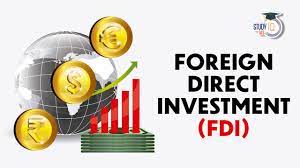Introduction:
Foreign Direct Investment (FDI) serves as a cornerstone for economic growth, offering avenues for job creation, technology transfer, and infrastructure development. Malaysia, with its strategic location and supportive policies, has the potential to attract substantial FDI inflows. This article delineates ten dynamic strategies aimed at maximizing FDI in Malaysia, thereby propelling sustainable economic development.
-
Streamlining Regulatory Processes:
- Digitize paperwork and approval processes to reduce administrative burdens.
- Establish a centralized investment facilitation center to expedite approvals.
- Enhance transparency by providing clear guidelines for foreign investors.
-
Customizing Incentive Programs:
- Tailor tax incentives to align with the needs of specific industries.
- Offer investment grants and subsidies to encourage FDI in targeted sectors.
- Provide specialized support services for foreign investors navigating local regulations.
-
Empowering Human Capital:
- Collaborate with educational institutions to develop industry-relevant training programs.
- Offer scholarships and internships to attract and retain top talent.
- Promote lifelong learning and upskilling initiatives to adapt to evolving industry demands.
-
Leveraging Regional Integration:
- Strengthen trade agreements within ASEAN to facilitate cross-border investments.
- Participate in regional economic forums and investment promotion events.
- Foster partnerships with neighboring countries to create synergies and enhance market access.
-
Fostering Innovation Ecosystems:
- Establish innovation hubs and technology parks to attract research and development (R&D) activities.
- Provide funding and support for startups and SMEs engaged in innovative ventures.
- Encourage collaboration between universities, research institutions, and industry players.
-
Prioritizing Infrastructure Development:
- Invest in transportation networks, digital infrastructure, and utilities to support business operations.
- Develop industrial parks and special economic zones with modern facilities and amenities.
- Improve connectivity and logistics to reduce costs and enhance efficiency for investors.
-
Enacting Investor-Friendly Policies:
- Implement transparent and predictable regulatory frameworks to instill investor confidence.
- Strengthen property rights protection and enforce contract law to safeguard investments.
- Establish mechanisms for dispute resolution to provide recourse for investors in case of conflicts.
-
Embracing Sustainable Practices:
- Promote investments in renewable energy, green technologies, and sustainable infrastructure projects.
- Introduce incentives for companies adopting environmentally friendly practices and technologies.
- Incorporate environmental and social considerations into investment policies and decision-making processes.
-
Strengthening Governance Mechanisms:
- Enhance anti-corruption measures and enforcement to maintain integrity and trust.
- Improve regulatory oversight and compliance to ensure fair competition and investor protection.
- Foster a culture of accountability and transparency in government agencies and business dealings.
-
Intensifying Promotional Efforts:
- Launch targeted marketing campaigns to showcase Malaysia’s investment opportunities.
- Participate in international investment forums and trade exhibitions to attract foreign investors.
- Collaborate with industry associations and chambers of commerce to amplify promotional efforts globally.
Conclusion:
By implementing these strategies, Malaysia can create a conducive environment for FDI, driving economic growth, innovation, and competitiveness. Through concerted efforts and partnerships between the public and private sectors, Malaysia can unlock its full potential as a leading destination for foreign investment in the region.
